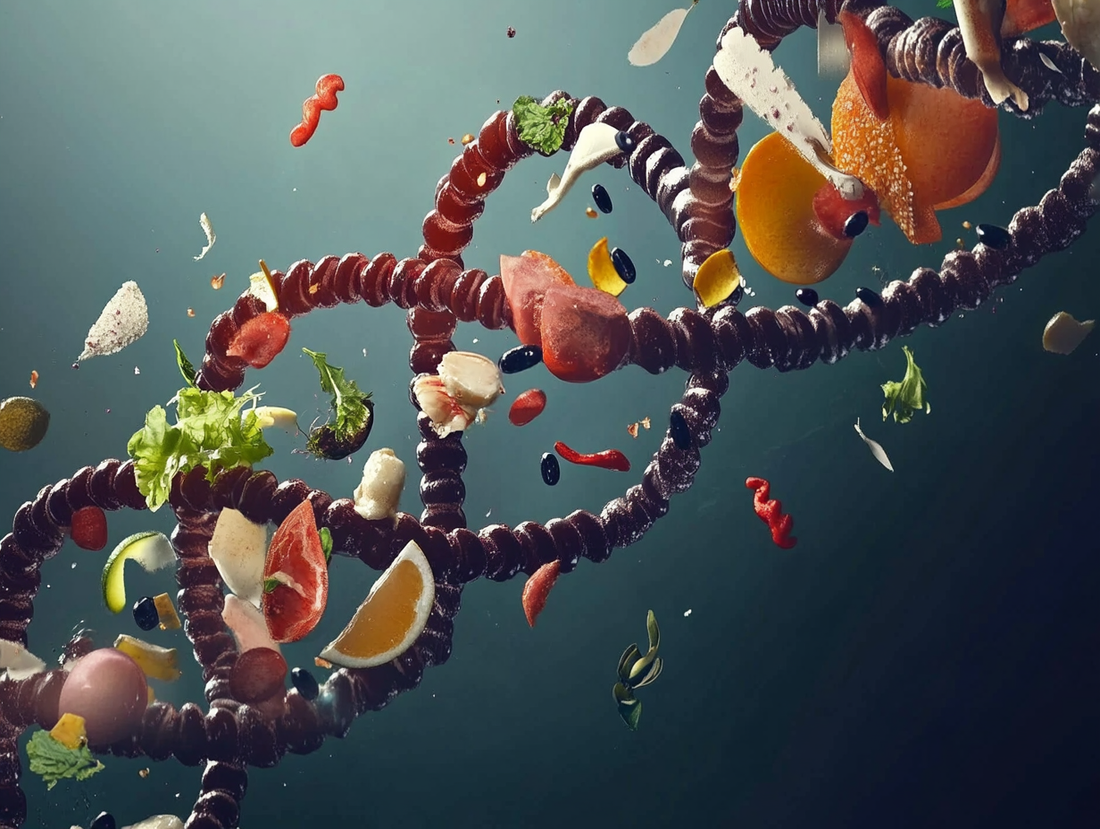
Genetic Testing: The Revolution in Food Health and Personalized Nutrition
Share
Advances in genetics have transformed the way we understand our relationship with food. Genetic testing applied to nutrition offers valuable information about how your DNA influences nutrient metabolism, food intolerances and genetic predispositions. This personalized approach can be key to optimizing your diet, improving your well-being and preventing long-term health problems.
What is a genetic test in nutritional health?
A genetic test is an analysis that studies your DNA to identify genetic variations related to your nutrition and metabolism. These tests, performed from a simple sample of saliva or blood, allow you to understand how your genes affect aspects such as:
- Your ability to metabolize certain nutrients, such as fats or carbohydrates.
- Predisposition to vitamin and mineral deficiencies.
- Food intolerances or sensitivities, such as lactose or gluten.
- The impact of certain foods on your weight or energy levels.
This data helps to design a nutritional and supplementation plan specifically tailored to your genetic needs.
Benefits of genetic testing in nutritional health
-
Personalized nutrition:
The test results allow you to create a diet that optimizes your metabolism and improves the absorption of essential nutrients. This can be especially helpful if you are looking to improve your energy, manage your weight, or address health issues related to your diet. -
Preventing health problems:
By identifying genetic predispositions, such as vitamin D deficiency or gluten intolerance, you can take preventative measures before these problems affect your quality of life. -
Greater effectiveness in the use of supplements:
Genetic results tell you which specific nutrients you may need to supplement and which ones are at optimal levels, avoiding unnecessary expenses and potential risks from overconsumption. -
Improving physical performance:
In athletes, genetic testing can identify the best combination of foods and supplements to enhance muscle recovery, endurance and overall performance.
Challenges and limitations of genetic testing
Although they are powerful tools, it is important to recognize that genetic tests do not determine your destiny. Your daily habits, such as diet, exercise, and stress management, also play a crucial role in your health. In addition, the results must be interpreted by health professionals, such as doctors or nutritionists, who integrate this information with a complete clinical evaluation.
The future of personalized nutrition
The application of genetics in nutrition represents a step towards a more preventative and personalized approach to health. These studies not only allow us to better understand our nutritional needs, but also promote more informed decisions about what to eat and how to supplement.
For example, someone with a genetic predisposition to omega-3 deficiency may want to include more fatty fish in their diet or consider a supplement. Similarly, someone with a genetic low tolerance to carbohydrates may want to adjust their intake to prevent long-term metabolic problems.
Conclusion
Genetic testing is an innovative and powerful tool for improving nutritional health and designing personalized nutritional strategies. By combining this knowledge with healthy habits and the guidance of a health professional, you can optimize your well-being and prevent diet-related health problems. Genetics not only explains who you are, but also how you can live better.
